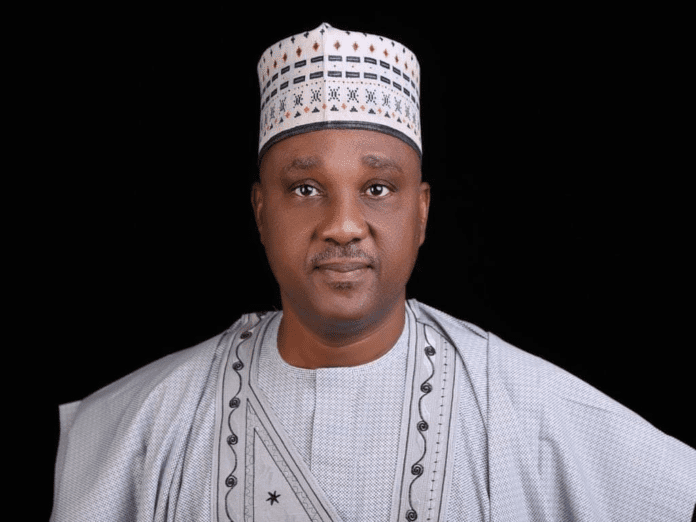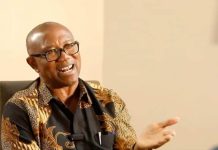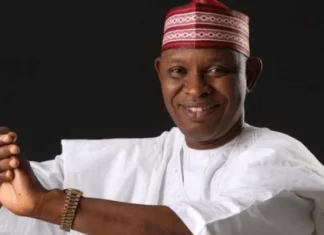The Legislative Agenda of the 10th House, which is currently being developed, will champion causes that cater to Nigerians’ aspirations, according to House of Representatives Speaker Rt. Hon. Abbas Tajudeen, Ph.D.
The Speaker said in his remarks at a stakeholders’ gathering on the legislative agenda on Monday in Abuja that the parliament was ready to welcome citizen participation in efforts to address the issues facing the nation.
Speaker Abbas stated that the gathering was “critical stakeholders’ meeting” in order to incorporate public input into the 10th House’s legislative agenda.
“Our goal is to have a legislative agenda that satisfies the needs and aspirations of citizens and that they can use as a yardstick to judge and assess our performance after four years,” he said. So, this meeting shouldn’t be considered your standard talk shop. Think of it as a crucial national assignment.
There is no better way, he noted, to demonstrate that the 10th House of Representatives is prepared to address the urgent needs of those who brought us to the people’s House to conduct people’s business.
According to him, the public engagement upheld the House’s resolve to regularly consult the public as it carried out the mandate placed in the lawmakers’ hands.
More expansive access
On July 4, 2023, upon the return of the House from a brief recess, the Speaker recalled his designation of the 10th House as “the House of the People.”
He continued: “I equally promised that while it is the duty of the House to develop a Legislative Agenda for which our constituents will hold us accountable, the House would not hesitate to consult critical stakeholders in developing the agenda to elicit their input and areas of expectations, which is the reason we have gathered here this morning.”
Speaking about how participation by the populace is the foundation of a representative democracy, Speaker Abbas said, “It is only through such engagements that legislators will truly become the representatives of the people. A democracy without the people would result from doing anything else, he continued.
The Speaker continued, “I urge the stakeholders gathered here to make the most of this significant opportunity,” noting that the Committee on Legislative Agenda had convened the forum as part of its mandate to learn from citizens what they perceive to be the most pressing legislative need of the country.
Speaker Abbas stated that he anticipated the discussions to centre on “the critical needs of our people at this time.”
The Speaker also emphasised that the House would give participatory budgeting, electoral reform, women’s participation and inclusion in governance, improved socioeconomic conditions, entrepreneurship, employment, health care, and education, infrastructure, citizens-focused diplomacy, institutional capacity, and citizen engagement, as well as constitutional amendment and restructuring, top priority.
“Our interaction with citizens will go beyond the consultation we’re having today. As we work to return the Legislature to those who own it through regular, meaningful, and productive engagements, the 10th House of Representatives’ “Open NASS” project calls for ongoing consultations with the public. In order to regularly interact with their constituents, lawmakers must also have operational constituency offices.
The Policy and Legal Advocacy Centre (PLAC) and the Foreign, Commonwealth and Development Office (FCDO) of the United Kingdom were thanked by Speaker Abbas for their support over the years, particularly for helping the House advance the legislative agenda.
Prof. Julius Ihonvbere, majority leader of the house and head of the house special committee on legislative agenda, said earlier in his welcome speech that the occasion marked “a pivotal moment in our nation’s history as we receive input to build a comprehensive blueprint to drive progress, prosperity, and inclusivity across our great nation.”
access the quick pay post
He stated that a prosperous and thriving Nigeria, where each citizen can realise their full potential, is the goal of the House for Nigeria.
“We picture a Nigeria with an economy that is strong and diverse, world-class infrastructure, transformative education, universal access to healthcare, and open and responsible government. The aspiration of every Nigerian, regardless of political affiliation, is embodied in this vision, he said.
The Chairman outlined the legislative agenda’s five main pillars, which are: infrastructure development; education and human capital development; universal access to healthcare; transparent governance and accountability; and economic empowerment and diversification.
Ihonvbere stated: “As the people’s representatives, we have been given the enormous responsibility of determining the course of our nation’s development.
“The Legislative Agenda is the result of tireless efforts, extensive consultations, and dedicated research aimed at addressing the critical challenges facing our country while seizing the abundant opportunities that lie ahead,” the legislative agenda reads.
Join Television Nigerian Whatsapp Now
Join Television Nigerian Facebook Now
Join Television Nigerian Twitter Now
Join Television Nigerian YouTUbe Now





